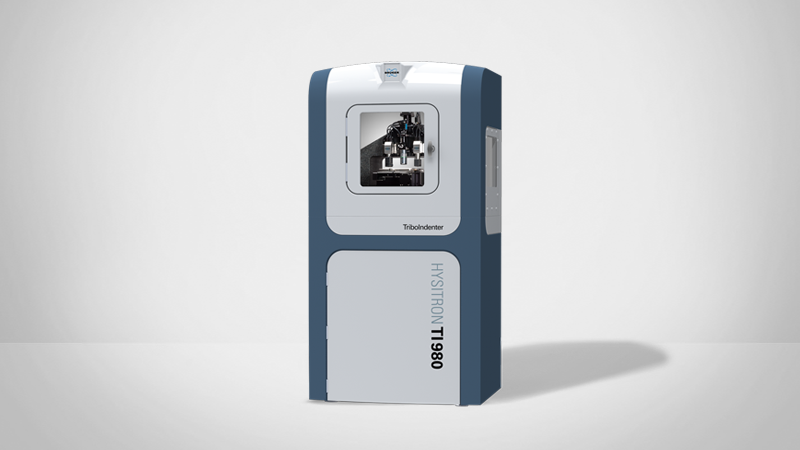TriboAE
Detect and record acoustic events during quasi-static nanoindentation
TriboAE gives researchers the ability to detect and record acoustic events during quasi-static nanoindentation and is a valuable tool for the investigation of the failure mechanics of brittle materials. To provide the highest sensitivity to monitor acoustic events, the acoustic sensor is imbedded into the indentation probe itself. This increases sensitivity and avoids the artifacts that convolute the results with surface mounted sensors.
TriboAE synchronizes acoustic emission events caused by crack-induced release of elastic strain energy with the load and displacement data that is recorded during the nanoindentation test so that correlations between data can be made.
Cohesive Fracture Detection
TriboAE provides a real-time correlation between force-displacement data obtained by quasi-static nanoindentation and the acoustic waveform generated by cohesive material fracture. Combined with in-situ SPM topographical imaging, changes in surface morphology associated with circumferential and radial fracture events around the nanoindentation site can be differentiated.
Interfacial Delamination Detection
In addition to cohesive fracture, acoustic events are often generated during the onset of thin film delamination and spallation. Combined with in-situ SPM imaging, researchers can correlate acoustic waveforms with the morphology of the delaminated region.

